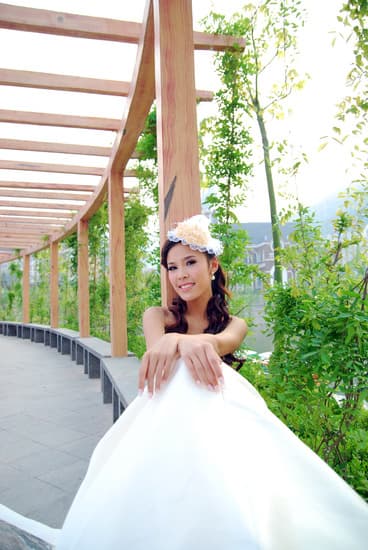The phrase “Do you take this man as your lawfully wedded husband” is a traditional and iconic part of wedding ceremonies. It is a question that signifies commitment, love, and the beginning of a lifelong partnership. This article will explore the meaning and tradition behind this significant phrase, as well as the evolution of wedding vows over time.
Throughout history, wedding vows have held deep cultural and religious significance. They have evolved to reflect the values and beliefs of different societies, encompassing both legal and emotional commitments. The act of saying “I do” at the altar has been a staple in marriage ceremonies, symbolizing unity and devotion.
In addition to delving into the historical context of wedding vows, this article will also feature personal reflections from individuals who have taken these vows. Their stories provide insight into the emotional impact of saying “I do” and taking someone as their lawfully wedded spouse. Furthermore, we will examine how modern couples are reinterpreting traditional wedding vows to better represent their unique relationships.
The History of Wedding Vows
Wedding vows have a long and rich history that dates back centuries. The tradition of making promises to one another during a marriage ceremony can be traced back to ancient civilizations such as the Romans and the Egyptians. In these early cultures, the exchange of vows was seen as a sacred and binding agreement, often accompanied by rituals and ceremonies to symbolize the new union.
As time passed and different religious beliefs and social customs emerged, wedding vows also evolved. In medieval Europe, couples would declare their intentions to marry in the present tense (“I take thee to be my wedded wife/husband”), highlighting the immediate nature of their commitment. During the Renaissance, marriage vows became more personalized, with couples adding their own words or promises to the traditional vows.
In modern times, wedding vows have become even more personalized and unique to each couple. While some choose to stick with traditional language such as “to have and to hold from this day forward,” others opt for writing their own heartfelt promises tailored specifically to their relationship. This shift reflects a broader cultural movement towards individualism and personal expression within marriage ceremonies.
| History Period | Development of Vows |
|---|---|
| Ancient Civilizations | Sacred agreements accompanied by rituals |
| Medieval Europe | Present tense declarations; immediate commitment |
| Renaissance | Personalized vows added onto traditional ones |
The Significance and Symbolism of Taking This Man as Your Lawfully Wedded Husband
When a bride is asked “Do you take this man as your lawfully wedded husband,” it is a pivotal moment in the wedding ceremony. This question holds immense significance and symbolism, representing not only the commitment to love and cherish one another, but also the legal union of two individuals.
The act of taking someone as your lawfully wedded husband goes beyond mere words; it reflects a profound promise to stand by each other through thick and thin, for better or for worse.
The phrase “lawfully wedded husband” has its roots in the legal aspect of marriage. By declaring your partner as your lawfully wedded husband, you are acknowledging the solemnity and legality of the union.
It signifies that both parties are entering into a legally binding contract, with rights and responsibilities that come with it. The act of marriage is not just an emotional or spiritual commitment; it is also a legal agreement recognized by the state or country in which it takes place.
Furthermore, “taking this man” represents the conscious choice to enter into marriage with full awareness and intention. It symbolizes the willingness to embrace all that comes with being married to this individual, including their strengths, weaknesses, and everything in between.
It signifies a pledge to honor and respect each other within the bounds of matrimony. Saying “I do” to taking this man as your lawfully wedded husband signifies a deep understanding of what it means to create a life together as a married couple.
Personal Reflections
When it comes to saying “I do” at the altar, every couple has a unique story to tell. Many couples choose to personalize their wedding vows, adding a personal touch to their special day. The exchange of marriage vows is a deeply meaningful moment in the wedding ceremony, highlighting the commitment and love between two individuals. Here are some real-life stories of couples saying “I do” at the altar:
- One couple decided to incorporate their favorite quotes from literature into their wedding vows, expressing their shared love for storytelling and the written word.
- Another pair wrote heartfelt letters to each other, detailing the reasons why they want to spend the rest of their lives together. These personal reflections added a sincere and emotional element to their wedding ceremony.
- Some couples choose to include promises and commitments that reflect their shared values and aspirations for the future. This serves as a public declaration of their intentions towards one another.
These personal reflections show that there is no one-size-fits-all approach when it comes to saying “I do”. Every couple has the opportunity to make their wedding vows a reflection of their unique love story, creating a truly unforgettable moment at the altar.
The exchange of marriage vows offers an intimate glimpse into the relationship between two people, inviting friends and family to witness and celebrate their commitment. Whether traditional or personalized, these real stories demonstrate the profound impact that saying “I do” has on a couple’s journey towards becoming lawfully wedded partners for life.
The Modernization of Wedding Vows
Traditional Wedding Vows
Traditional wedding vows have been used for centuries and typically include the phrase “Do you take this man as your lawfully wedded husband” as a key part of the commitment. These vows often follow a standard script that has been passed down through generations, with couples promising to love and cherish each other until death do them part. While these traditional vows hold deep historical significance, many couples nowadays are opting for a more personalized approach to their wedding promises.
Personalized Wedding Vows
In recent years, there has been a shift towards personalized wedding vows that reflect the unique bond between the couple. Personalized vows allow individuals to express their feelings and promises in their own words, creating a more intimate and heartfelt ceremony. This approach gives couples the freedom to include personal stories, inside jokes, and specific commitments that hold special meaning to them as a pair.
Finding the Balance
The modernization of wedding vows has sparked debates about the balance between tradition and personalization. While some believe that sticking to traditional vows maintains a sense of formality and respect for the institution of marriage, others argue that personalized promises deepen emotional connections and make the ceremony more meaningful.
Finding the right balance between tradition and personalization is essential for couples as they determine what kind of commitment they want to make on their special day. Ultimately, whether choosing traditional or personalized promises, the importance lies in making sincere and genuine commitments to each other as partners for life.
The Legal Aspects of Saying I Do
Marriage is not only a sacred and emotional commitment, but it also holds legal implications. When a couple says “I do” at the altar and declares “I take this man as my lawfully wedded husband,” they are entering into a legal contract that binds them together in the eyes of the law. This declaration signifies that both parties are willingly consenting to enter into a legal marriage and are aware of the rights and responsibilities that come with it.
The legal aspects of marriage vows include the understanding of marriage laws, property ownership, inheritance rights, tax implications, and spousal support in case of divorce. By saying these traditional words, couples agree to abide by these laws and regulations set forth by their state or country. It’s important for individuals to be aware of the legalities involved in marriage vows and to fully understand the consequences of declaring “I take this man as my lawfully wedded husband”.
Furthermore, before stating these vows, couples should consider consulting with a family lawyer to ensure they have a clear understanding of how their personal circumstances may affect their legal rights and obligations as married partners. This will help them make informed decisions about their future together and protect themselves legally. Ultimately, understanding the legal aspects of saying I do is crucial for any couple embarking on the journey of marriage.
Cultural and Religious Variations of Wedding Vows
In various cultures and religions around the world, the act of marriage is surrounded by unique traditions and customs, including the wedding vows. These cultural and religious variations of wedding vows shed light on the diverse ways in which different societies approach the marriage ceremony.
In Hindu culture, the wedding ceremony is a sacred and elaborate event that includes many rituals and traditions. In traditional Hindu weddings, couples take their vows by reciting Sanskrit verses from ancient scriptures. The bride and groom make promises to each other in the presence of a sacred fire as a witness to their union. These vows are considered binding and are meant to signify the lifelong commitment between the couple.
In Jewish tradition, wedding vows are spoken under a chuppah, a canopy symbolizing the new home being created by the couple. The bride circles the groom seven times, representing the seven blessings and seven wedding blessings that will enrich their lives together. The groom then places a ring on the bride’s finger while reciting a declaration of his love and commitment. Jewish wedding vows emphasize mutual respect, kindness, companionship, and love as essential elements of a successful marriage.
Lastly, in Mexican culture, the exchange of wedding vows may be accompanied by specific rituals such as lazo (the lasso) or arras (coins). During lazo, a rosary or decorative cord is placed around the shoulders of the couple in a figure-eight shape to symbolize unity and eternity.
Arras involves gifting 13 gold coins to represent Jesus Christ and his 12 apostles while expressing an intention to provide for one another’s welfare. Both these customs accentuate themes like unity, mutual support, faithfulness, prosperity, and trust within marriage.
These examples illustrate how different cultures have distinct approaches to wedding vows within their respective marriage ceremonies.
| Culture/Religion | Unique Wedding Vow Traditions |
|---|---|
| Hindu | Reciting Sanskrit verses; promises made in front of sacred fire |
| Jewish | Spoken under chuppah; emphasis on respect & companionship |
| Mexican | Lazo & Arras rituals; symbols of unity & prosperity |
The Emotional Impact of Saying I Do
The Emotional Commitment
When a couple stands at the altar and says their wedding vows, they are making a public declaration of their love and commitment to each other. This act of verbalizing their promises to one another creates a deep emotional bond that signifies the beginning of their life together as a married couple. The spoken words, “I Do” hold immense emotional weight as they symbolize the willingness to embark on a lifelong journey with their partner.
Impact on Relationship Dynamics
Saying I Do and taking this man as your lawfully wedded husband can significantly impact the dynamics of a relationship. It signifies a shift from being separate individuals to becoming a unified entity as a married couple.
The exchange of vows often brings couples closer together emotionally, fostering trust, security, and a sense of belonging with one another. The emotional impact of wedding vows on relationships is evident in the increased sense of partnership, mutual respect, and deeper emotional connection that follows after saying I Do.
Long-Term Commitment
The act of saying I Do not only has an immediate emotional impact but also serves as a reminder of the long-term commitment that has been made. As time goes on, recalling those words spoken at the altar can serve as a source of strength during challenging times in the marriage.
The emotional significance of taking this man as your lawfully wedded husband lies in the enduring commitment it represents, providing couples with stability and reassurance throughout their married life.
Conclusion
In conclusion, the act of saying “I do” and taking this man as your lawfully wedded husband holds a deep significance that transcends time and culture. It is a tradition that has evolved over the centuries, from the simple exchange of vows to the modern personalized promises couples make to each other. Despite these changes, the emotional impact of making these commitments remains profound, shaping relationships and strengthening bonds.
The beauty of saying “I do” lies in its ability to signify a lifelong commitment between two individuals. It represents the promise to love and cherish each other through both joyous times and challenging moments. Whether rooted in tradition or personalized to reflect unique values and beliefs, wedding vows serve as a public declaration of dedication and devotion.
As we explore the history, symbolism, legalities, and cultural variations surrounding wedding vows, one thing remains constant: the emotional impact of committing to another person for life. The act of answering “I do” to the question “do you take this man as your lawfully wedded husband” symbolizes a deep connection and enduring love that transcends time and tradition. It is a beautiful testament to the power of love and partnership in our lives.

I have been involved in marriages for over 20 years helping couples and singles understand more about them.





